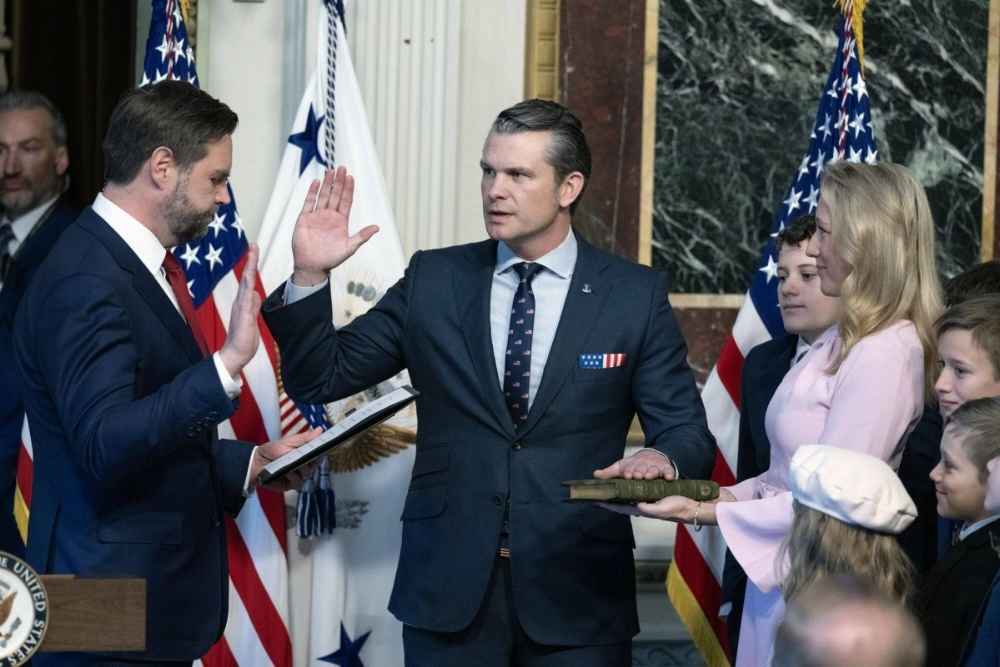New U.S. Defense Secretary Pete Hegseth pledged to work with Washington’s allies and partners Saturday in a message to the Defense Department as he took up his post at the Pentagon.
In the short message, Hegseth appeared to try and dispel concerns stewing in allied capitals such as Tokyo and Seoul that the U.S. under President Donald Trump could mean a return to a more transactional approach to foreign policy.
“We will work with allies and partners to deter aggression in the Indo-Pacific by Communist China, as well as supporting the President's priority to end wars responsibly and reorient to key threats,” Hegseth wrote in the letter. “We will stand by our allies — and our enemies are on notice.”


















With your current subscription plan you can comment on stories. However, before writing your first comment, please create a display name in the Profile section of your subscriber account page.